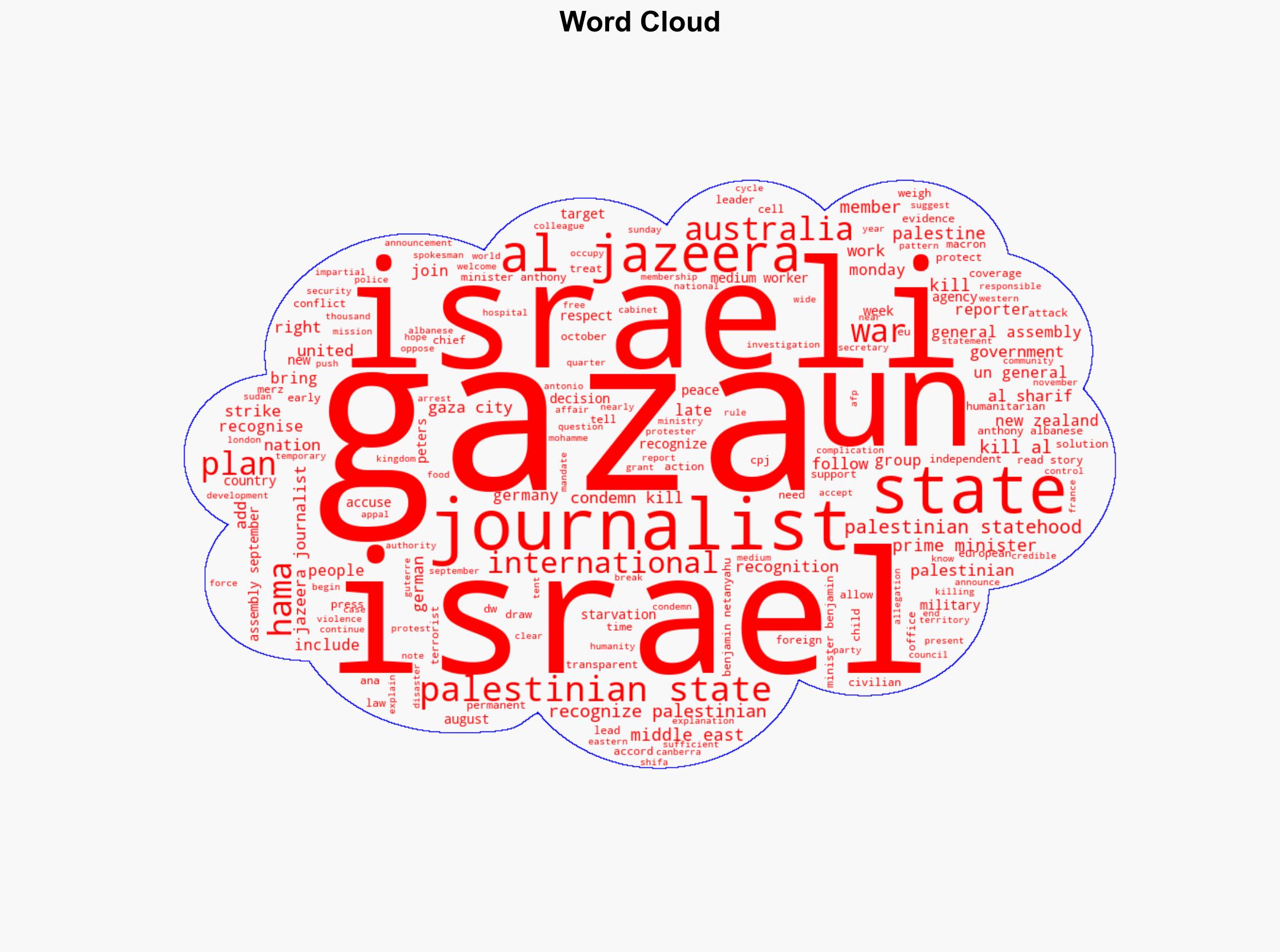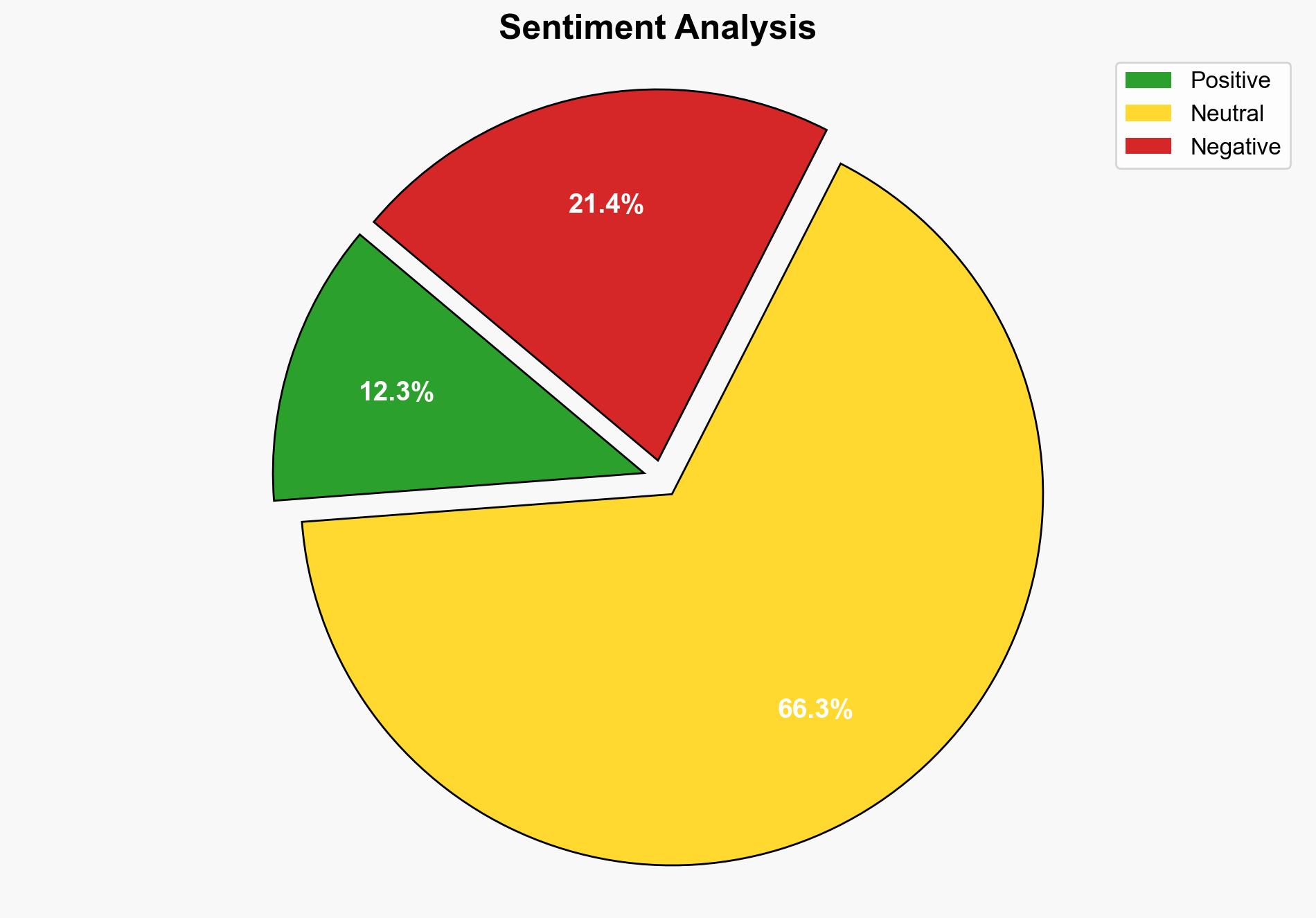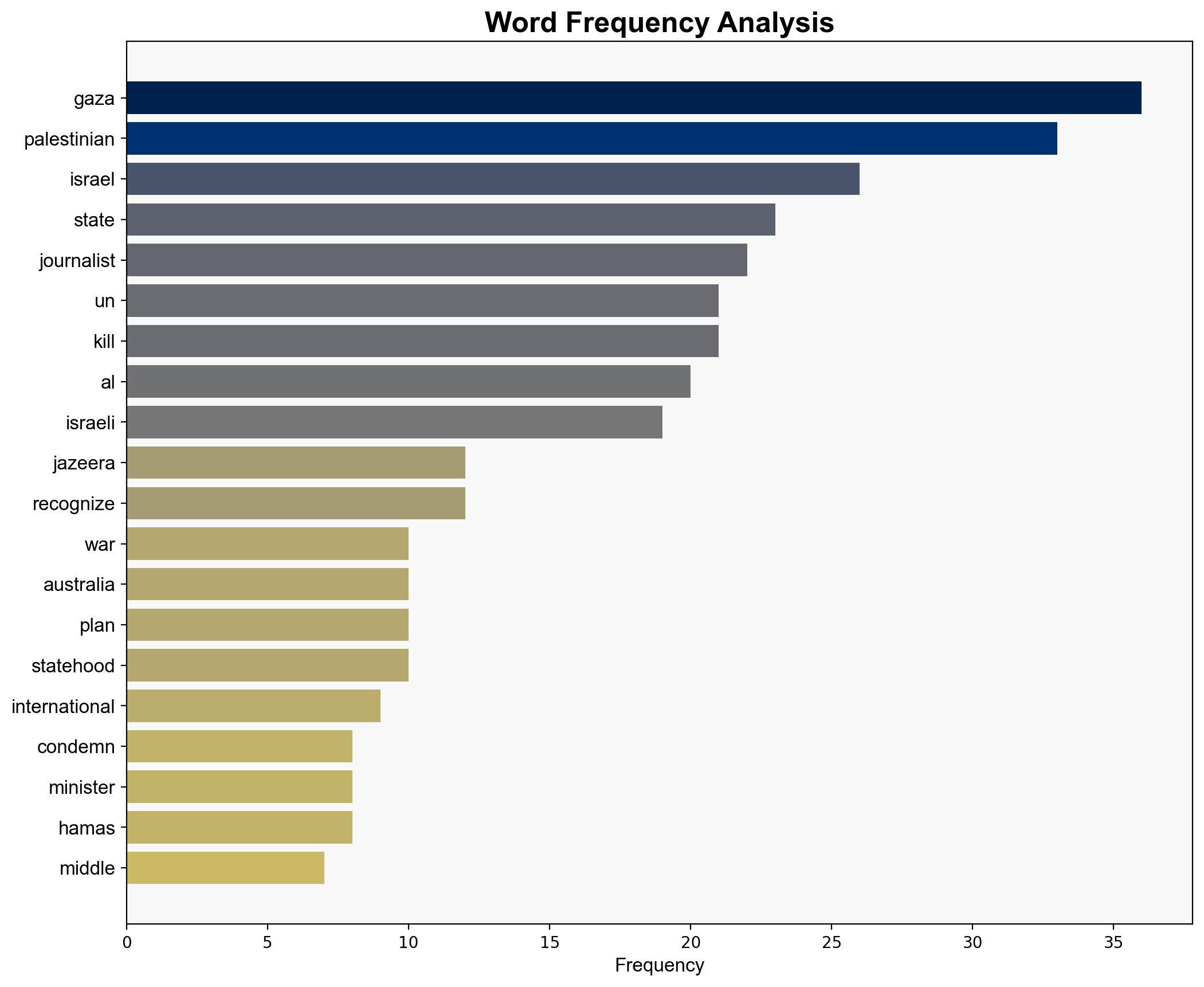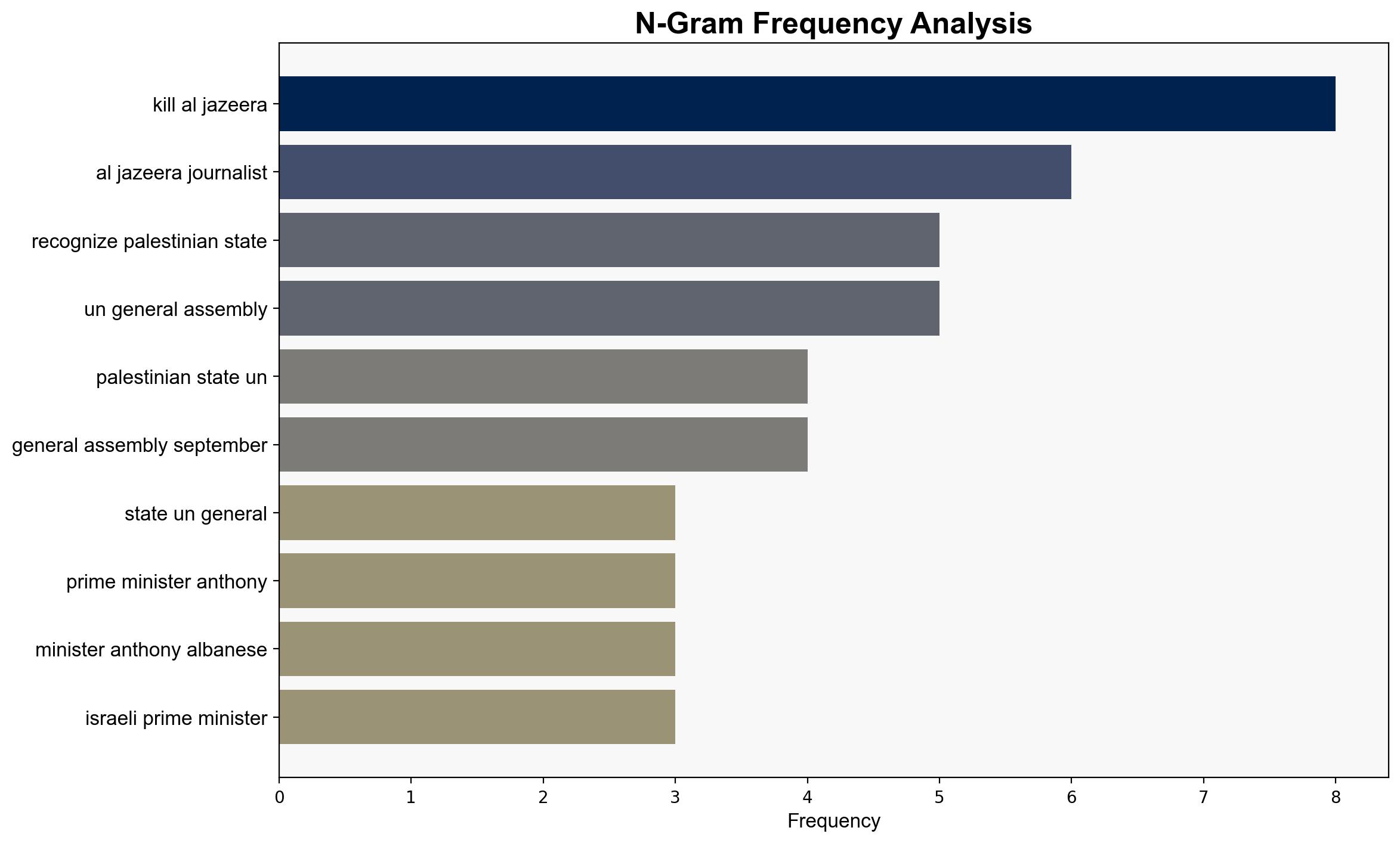Middle East Australia to recognize Palestinian state at UN – DW (English)
Published on: 2025-08-11
Intelligence Report: Middle East Australia to recognize Palestinian state at UN – DW (English)
1. BLUF (Bottom Line Up Front)
Australia’s potential recognition of a Palestinian state at the UN could signal a shift in international diplomatic alignments, potentially influencing Middle East geopolitics. The most supported hypothesis suggests this move aligns with broader Western trends towards Palestinian statehood recognition. Confidence Level: Moderate. Recommended Action: Monitor diplomatic responses from key regional players and assess potential impacts on Australia’s international relations.
2. Competing Hypotheses
1. **Hypothesis A**: Australia’s recognition of a Palestinian state is part of a coordinated Western strategy to pressure Israel into negotiations and address longstanding conflicts in the region. This hypothesis is supported by similar actions from France and the UK.
2. **Hypothesis B**: Australia’s decision is primarily a domestic political maneuver aimed at strengthening its international standing and appeasing domestic constituencies advocating for Palestinian rights. This hypothesis considers internal political dynamics rather than external coordination.
Using ACH 2.0, Hypothesis A is better supported due to the alignment with broader Western diplomatic trends and the timing of similar actions by other nations.
3. Key Assumptions and Red Flags
– **Assumptions**: It is assumed that Australia’s decision is influenced by international diplomatic trends and not solely domestic politics. Another assumption is that this recognition will significantly impact Israel-Palestine negotiations.
– **Red Flags**: Lack of explicit statements from Australia regarding the motivations behind this decision. The potential for misinterpretation of Australia’s intentions by regional actors.
– **Blind Spots**: The internal political pressures within Australia that might be driving this decision are not fully explored.
4. Implications and Strategic Risks
– **Geopolitical Risks**: This move could exacerbate tensions between Australia and Israel, potentially affecting bilateral relations and trade.
– **Regional Stability**: Recognition might embolden Palestinian groups, leading to increased tensions or conflict in the region.
– **Diplomatic Dynamics**: Could influence other countries to follow suit, altering the diplomatic landscape and potentially isolating Israel further.
5. Recommendations and Outlook
- Engage in diplomatic dialogue with both Israeli and Palestinian representatives to mitigate potential backlash.
- Monitor regional reactions closely, particularly from Middle Eastern countries and key Western allies.
- Scenario Projections:
- **Best Case**: Recognition leads to renewed peace talks and a reduction in regional tensions.
- **Worst Case**: Escalation of conflict in the region, with increased violence and diplomatic fallout for Australia.
- **Most Likely**: Diplomatic tensions rise temporarily, with limited long-term impact on Australia’s international relations.
6. Key Individuals and Entities
– **Anthony Albanese**: Prime Minister of Australia, central to the decision-making process.
– **Benjamin Netanyahu**: Prime Minister of Israel, vocal critic of the recognition.
– **Antonio Guterres**: UN Secretary-General, advocating for impartial investigations in related regional conflicts.
7. Thematic Tags
national security threats, regional focus, diplomatic relations, Middle East politics





